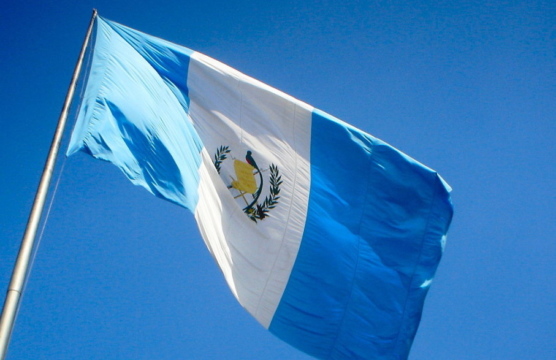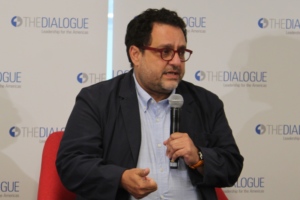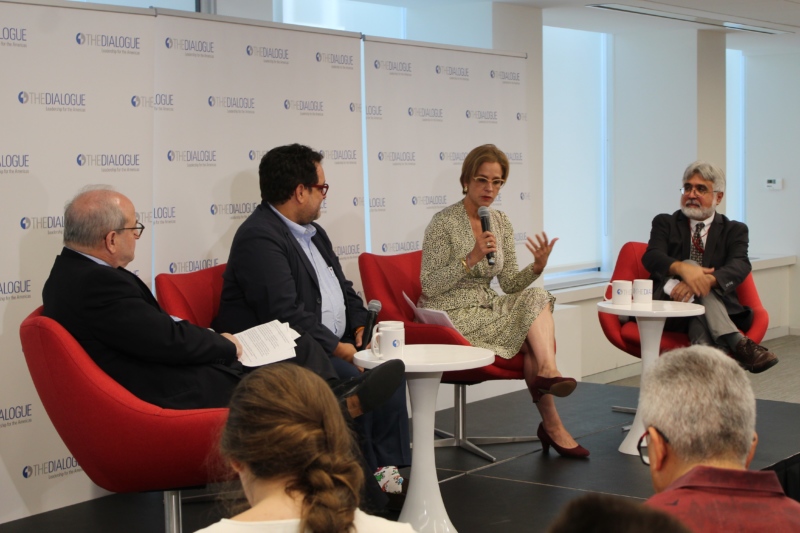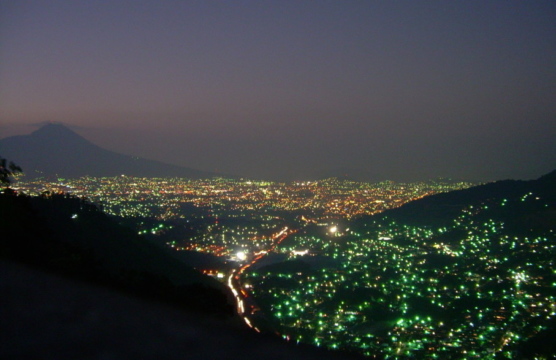
Are Countries Making Progress in Fighting Corruption?
Which countries in the region are making strides in fighting corruption, and which are falling short?
On August 1, 2019 the Inter-American Dialogue hosted the event “The Last Straw: Puerto Rico After ‘Ricky Leaks’” with Gretchen Sierra-Zorita, a public policy and communications consultant, José A. Delgado, the Washington correspondent for El Nuevo Día, and Pedro Reina Pérez, professor at the University of Puerto Rico. Michael Shifter, president of the Inter-American Dialogue, gave opening remarks and moderated the event.
Shifter opened by addressing the recent weeks of protests on the island that lead to former governor Ricardo Roselló’s resignation from his governor position. He highlighted aspects that distinguished this movement from previous protests, such as the role investigative journalism played in the events.
[caption id="attachment_85720" align="alignleft" width="300"] Panelist Pedro Reina Pérez[/caption]
Panelist Pedro Reina Pérez[/caption]
Delgado spoke about the symbolism of the recent protests. He stated that Roselló accomplished something no previous governor had before: a non-partisan union in Puerto Rico. He gave his perspective on what the current demands and expectations are in the legal, political, and civil spheres, highlighting that people want immediate change, such as resignation of Roselló. Another critical point Delgado brought up was the role that the arts played during the protests. Led by Puerto Rican artists including Bad Bunny, Ricky Martin, and Residente Calle 13, the protests projected the people’s frustration in moving, often novel, ways.
Sierra-Zorita commented on the policy changes she foresaw resulting from this movement, contextualizing how Puerto Rico has been under colonial administration for 500 years, and how this history can be seen through Puerto Ricans’ engagement with politics. While people in Puerto Rico have high voter turnout, the idea of the individual being an agent of change is not a commonly represented notion. Echoing Delgado’s sentiments, she also praised the unique role the arts played during the protests and pointed out that the main issue is corruption. Sierra-Zorita stated that the adjustments that the federally-appointed Financial Oversight and Management Board needs are different from those related to Rosello’s resignation. She finds that the movement will lose strength if there are additional problems that keep getting added to the agenda.
Professor Reina Pérez emphasized that the movement is something organic and that it originated from the mutual trauma experienced by the Puerto Ricans—from bankruptcy, to Hurricane Maria and Federal Oversight Board. It marked the beginning of a time when people willingly stepped up, spoke up and said no. He commented on the role that millennials played in the protests, and how their active participation refutes the notion that they are not invested in politics. If anything, he argued, they proved that they are political, but not partisan. Complimenting the commentary pertaining to the importance the arts played in the protests, he emphasized the power of using culture as a means of expression and as a vehicle to move things forward. He said that the next stage of anger would be directed towards the legislature and made an important emphasis that if there is no leadership, one that holds moral capital and represents the demanded change, then the movement will be derailed from its original goals.
The Q&A deepened many of the analyses about the causes and effects and general standing of the situation in Puerto Rico. The panelists explained the role of the legislature further and addressed the fact that businesses need to step in and take an active role to guide the change that must occur.
Which countries in the region are making strides in fighting corruption, and which are falling short?
Organized criminal groups pose an increasing risk to democracy and the rule of law in El Salvador.
Over the past weeks, public discontent with the administration of President Dilma Rousseff has continued to rise.
 Ricardo Barrios / Inter-American Dialogue
Ricardo Barrios / Inter-American Dialogue
 Video
Video